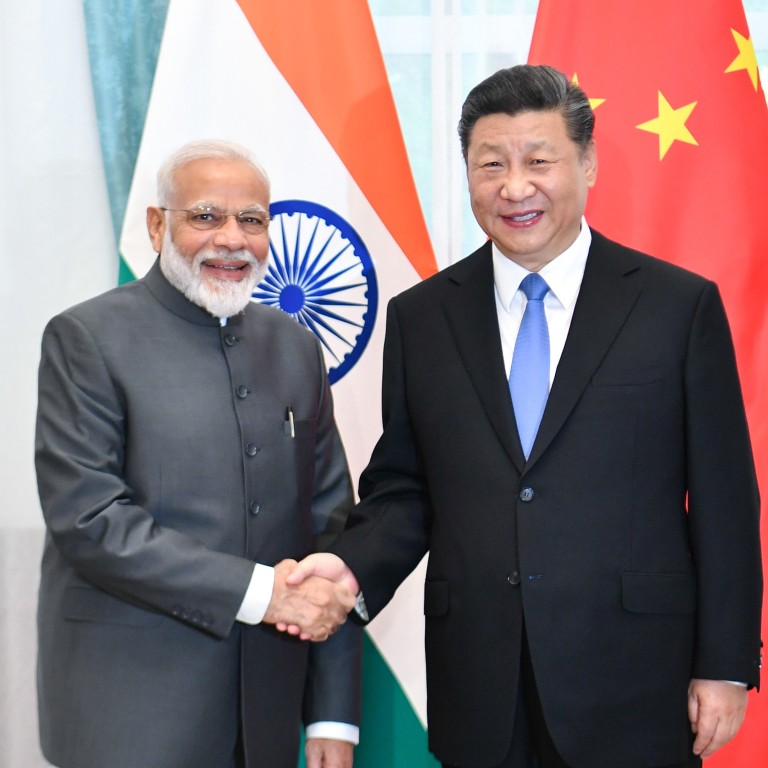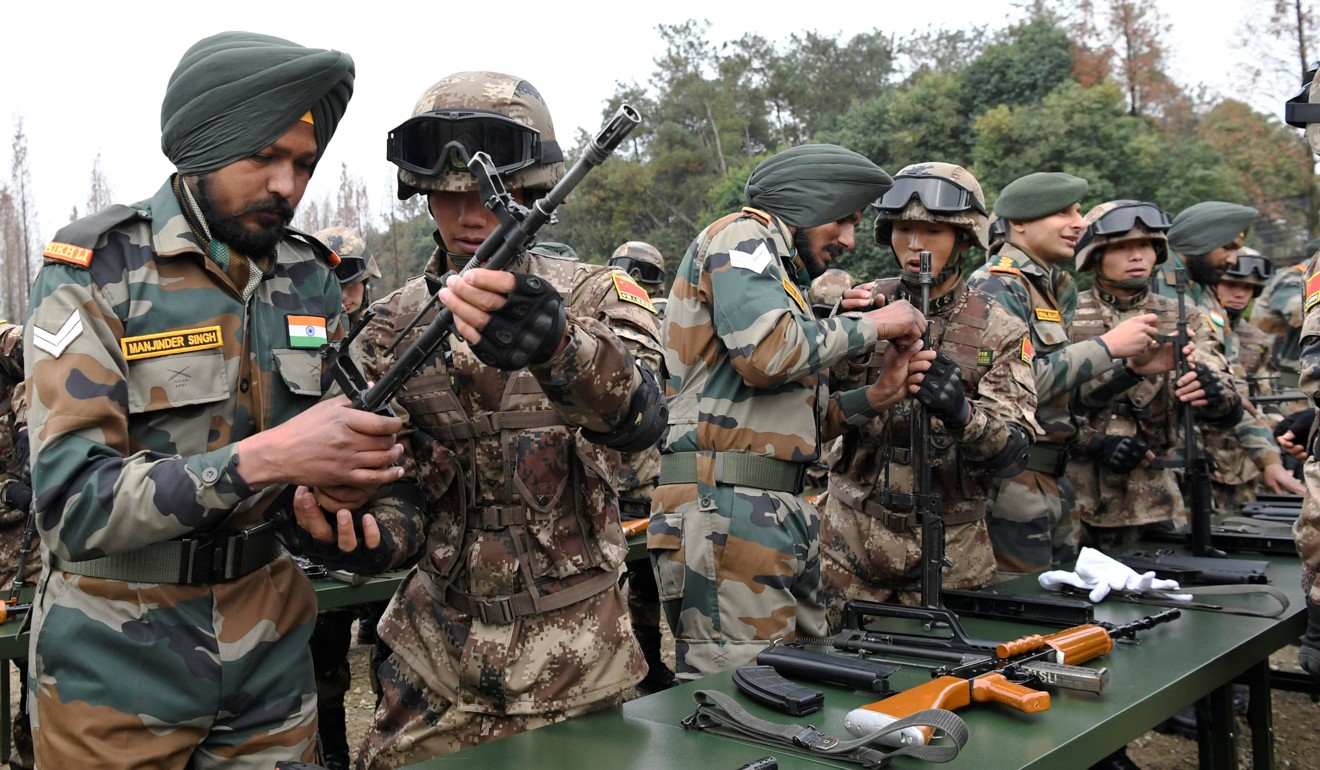
China and India offer ‘opportunities, not a threat, to one another’ President Xi Jinping tells Prime Minister Narendra Modi
- Chinese President urges Pakistani Prime Minister Imran Khan to try to improve relations with its neighbour after Modi airs concerns about terrorism
- Despite Xi’s appeal for co-operation, some observers believe China’s rise is seen in New Delhi as the principal national threat
President Xi Jinping has said China and India should not regard each other as a threat in a meeting with Prime Minister Narendra Modi.
The relationship between the two countries has been overshadowed by border disputes, and India’s demands that Pakistan – one of China’s key allies – take tougher action against terrorism.
Modi raised his concerns about terrorism with Xi and, in a subsequent meeting with Pakistani Prime Minister Imran Khan, the Chinese leader urged Islamabad to work to improve relations with New Delhi.
“China supports Pakistan and India improving relations,” Xi said. “The two sides should thoroughly communicate on issues of common concern and jointly safeguard international and regional security and stability.”
The exchanges between the three happened during the Shanghai Cooperation Organisation meeting in Bishkek, the capital of Kyrgyzstan.
The meeting with Modi on Thursday was the first meeting between the leaders since Modi and his Bharatiya Janata Party won the general election in May.
“China and India are opportunities, not a threat, to one another,” Xi said, according to China’s foreign ministry.
“The cooperation between China and India will not only help each other’s [economic] development, but it will also contribute to peace, stability and prosperity in Asia and the world. China is willing to work with India to continue to promote a closer development partnership,” it said.
In a tweet, Modi said he had a fruitful meeting with Xi and that the two nations should continue working together to improve economic and cultural ties.
The comments came weeks before the G20 summit in Osaka, Japan, where Xi and his US counterpart Donald Trump are expected to discuss their trade dispute.
China seeks Indian and Russian backing for trading system
India is one of many countries that have voiced concerns about the effect of the United States’ protectionist policies on world trade, raising expectations that New Delhi will use the Bishkek meeting to express its position.
Trump has said he is prepared to impose more trade tariffs on Chinese imports if Xi refuses to meet him in Osaka and has asked America’s allies to help contain China’s business, economic and strategic interests.
On Thursday, Modi raised the issue of cross-border terrorism from Pakistan, Indian media reported.
India expected “concrete action” by Islamabad, Modi said.
India’s Foreign Secretary Vijay Gokhale said Modi told Xi that Pakistan needed to foster an atmosphere without terrorism and “at this stage we do not see this happening”, The Times of India reported.
Sampa Kundu, an assistant professor at Symbiosis School of International Studies in Pune, India, said addressing terrorism was India’s main concern.
The summit provided India with “a platform to discuss issues concerning global security, and other issues of mutual concerns”, Kundu said, noting that global terrorism was just as much a concern for China.
Ex-Chinese envoy to India promoted after helping get ties back on track
Rajeev Ranjan Chaturvedy, a visiting fellow at the S Rajaratnam School of International Studies at Nanyang Technological University in Singapore, said: “India and China are addressing some of their concerns through official dialogue and there is a visible improvement in their relations, including economic”, and that improvement in relations was likely to continue.
“US-China power dynamics are already affecting many countries, and India is no exception,” he said.
“It is one of the biggest challenges for the Indian government to navigate the relations with both powers … India has only one choice, and that is to improve relations with all major powers.”

But despite the two leaders’ commitment to work together, the fundamentally competitive dynamic that shaped relations between the two countries was not likely to change in the short-term, analysts said.
“India should have complex calculations for its respective relations with the US and China,” said Zhang Baohui, director of the Centre for Asian Pacific Studies at Lingnan University in Hong Kong.
“The Indian elite sees a rising China as the principal threat and there has been a significant development in the security relations between New Delhi and Washington in the recent decade.
“While Modi and Xi have managed to improve their relations after the dangerous border face-off of 2017, India will certainly not forsake its relations with the United States.”
The US has enlisted support for its Indo-Pacific policy – widely known as the China containment policy – from Australia, Japan and India, forming what is referred to as the Quad.

